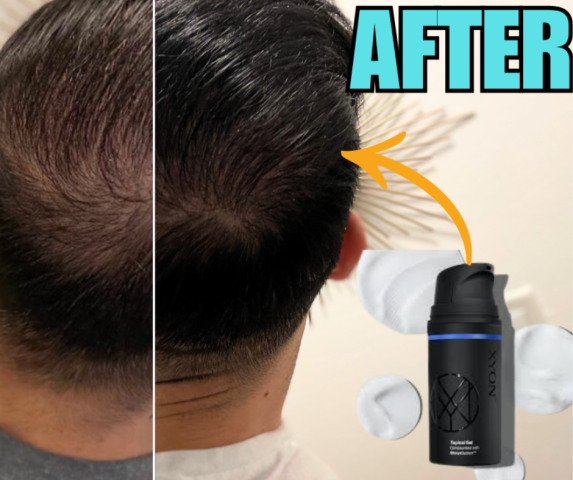Topical dutasteride, a topical formulation of the medication dutasteride, has been explored as a potential treatment for androgenetic alopecia (male pattern hair loss). Dutasteride is a 5-alpha-reductase inhibitor, which blocks the conversion of testosterone to dihydrotestosterone (DHT), a hormone implicated in hair loss.
Topical dutasteride has shown promise for promoting hair growth in some studies. However, its effectiveness compared to other treatments, like oral finasteride (another 5-alpha-reductase inhibitor), is still a subject of research and debate. Some studies suggest that topical dutasteride may offer comparable or even superior results to low-dose oral finasteride and might be a viable alternative for individuals who cannot tolerate oral finasteride due to side effects. However, there isn't enough clinical data when comparing topical dutasteride to oral finasteride or even oral dutasteride.
How Topical Dutasteride Works
Dutasteride is a 5-alpha-reductase inhibitor. It works by blocking the conversion of testosterone to dihydrotestosterone (DHT), which is a hormone implicated in hair loss. Topical dutasteride aims to halt hair loss and promote hair regrowth by reducing DHT levels in the scalp. Topical dutasteride has a molecular weight of 528 daltons. The heavier the molecular weight, the more difficult it is to absorb into the bloodstream. This has led to speculation that topical dutasteride has a negligible effect on systemic DHT while eliminating DHT locally on the scalp.
Studies on topical dutasteride for hair loss have shown promising results, with some suggesting it may be potentially comparable to oral finasteride (another 5-alpha-reductase inhibitor). However, there aren't enough studies to compare the two treatments. It should also be noted that the studies are small. It should also be noted that there have been no reported sexual side effects, which is the most common concern among potential users.
While topical application may reduce the risk of systemic side effects compared to oral finasteride/dutasteride, there is still a potential for local side effects such as scalp irritation, dryness, or redness. Additionally, since dutasteride affects hormone levels, there may be a slight change in systemic DHT levels, although these are thought to be less familiar with topical application.
In conclusion, while topical dutasteride/finasteride shows promise as a treatment for hair loss, its safety and effectiveness should be evaluated on a case-by-case basis, and individuals considering this treatment should consult with a healthcare professional or dermatologist to make an informed decision based on their specific needs and circumstances.

